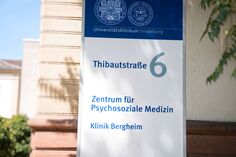Declarative memory deficits and their neurobiological basis in the course of major depression
Cognitive dysfunction, especially memory impairment, is among the most frequent and earliest signs in depression. It is clinically important since it is associated with a higher risk for suicidal ideation and goes along with a less favourable outcome. The memory impairment refers to declarative memory functions whereas implicit memory functions appear to be spared.
Experimental animal studies and human lesion studies show that declarative memory depends on a structurally and functionally intact temporal lobe, especially the hippocampal area. At the same time depression is associated with structural and/or functional abnormalities of the hippocampus. It is well known that hypercortisolism influences the hippocampal integrity in animals, but in humans it remains unclear whether hypercortisolism is associated with hippocampal atrophy. An impairment of the hypothalamic-pituitary-adrenal (HPA) axis, resulting in hypercortisolism, is involved in the pathophysiology of depression. However, the causal interrelations among these neuropsychological, neurobiological and endocrinological aspects are still unknown.
In the course of major depression poor memory performance improves as regularly with treatment. Previously reported hippocampal plasticity in depression is referred to neurogenesis and/or increased synaptic formation. The neuropsychological and the psychopathological correlate of this plasticity still remain unclear, but it is known, that there is a positive correlation of declarative memory deficits with hippocampal dysfunction. There are no prospective studies to investigate the course of these aspects in depression. Therefore, there is no knowledge about their potential impact and predictive power in respect to course and outcome.
The goal of our project is to investigate the interrelation of declarative memory function and temporal and spatial aspects of brain activation in depressed patients and healthy controls and to assess their course in a longitudinal design. In addition, the potential impact of a dysfunctional HPA axis will be examined. To assess brain activation we will conduct a trace conditioning paradigm on depressed patients and healthy controls at different times (in the acute phase and after remission for the depressed patients and at a parallel time point for the healthy controls). Half of the patients will be examined in an event-related-potential (ERP) study (64-channel-EEG) and the other half in an functional magnetic resonance imaging (fMRI) study. The EEG focuses more on temporal aspects and the fMRI concentrates on spatial aspects of the brain activation. In addition, declarative and implicit memory function will be assessed neuropsychologically, HPA axis function will be measured and brain morphology will be analyzed (structural magnetic resonance imaging).
We hope that our project will be helpful for a better understanding of the causual relationship of the studied parameters in the development and the course of depression. Further studies should investigate their function referring to a better diagnostic and therapeutic approach of the disease.



